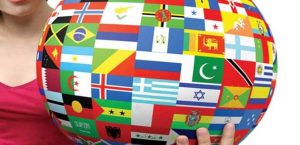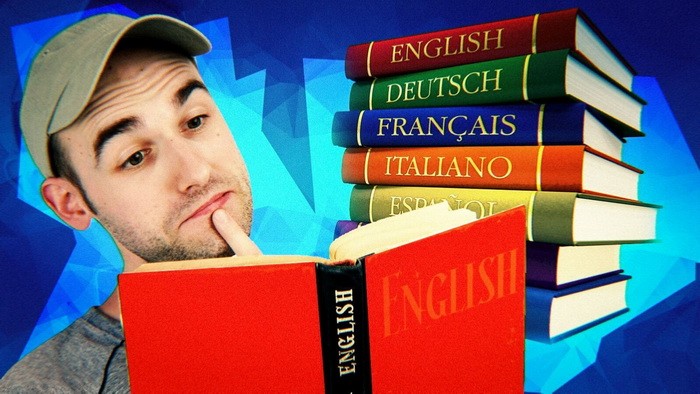There is an episode in the film “Airplane Flies to Russia”:
– Director, do you know English and telugu to english?
– Well, I taught at school, then at the institute … no, I don’t know.
Why does it happen that we learn a foreign language at school and university, but in fact we do not know it? And what if we want to become a polyglot already in adulthood? Is it possible?
Who are polyglots?
A polyglot is a person who has learned more than 3 foreign languages for himself. And it’s better if these languages are in different language groups:
Germanic languages: English, German, Norwegian, Swedish, Dutch, Danish, Icelandic.
Romance languages: French, Spanish, Portuguese, Italian, Romanian.
Slavic languages: Polish, Czech, Russian, Belarusian, Ukrainian.
People who speak two languages are called bilinguals, three – polylinguals, more than three – polyglots.
The first known polyglot in history was Mithridates VI Eupator, king of Pontus (132-63 BC). He knew 22 languages. The polyglot woman Cleopatra (69-30 BC), the last queen of Egypt, along with Greek and Latin, spoke at least 10 more languages.
Of the Russian celebrities, it should be noted Mikhail Lomonosov, who was fluent in 11 foreign languages and was able to understand and speak tolerably in several more. Lev Nikolaevich Tolstoy knew 15 foreign languages.
Of the politicians, one should note Vladimir Ilyich Lenin, who knew French and German, and later learned English; and Joseph Stalin, who knew Georgian, Russian, Ancient Greek, Latin, German, Farsi, French. In addition, Stalin read German, studied Latin, ancient Greek, Church Slavonic, understood Farsi (Persian) and Armenian.
After them, few of the leaders of the Soviet state knew at least two foreign languages. At the moment, we can single out the leader of the LDPR, Vladimir Volfovich Zhirinovsky, he knows four foreign languages: English, German, French, Turkish.
But let’s figure out what it means to “know the language.” The criterion of knowledge of a foreign language can be divided into 3 categories:
– I can read
– I can speak,
– professional skills: translate and teach.
Each person for himself must ask himself the question: why do you need to learn a language? Indeed, depending on the purpose of the study, the volume of the language being studied will also depend. For example, traveling around different countries and easily explaining yourself in a store, hotel and restaurant is one thing, but conducting diplomatic negotiations requires completely different knowledge and level of a foreign language.
Perhaps the answers to these questions will allow answering the question – how many languages can a person know.
Why have we not been able to learn languages before?
Why can’t we boast of our knowledge of a foreign language after 10 years of studying it (school and university)? Modern methodologists have identified 2 reasons: the state and educational institutions (schools).
The school teaching system is focused primarily not on teaching the skills of reading foreign literature and writing, but on a mandatory minimum, where getting a grade comes to the fore. There is also an imperfect teaching method. All this leads to how and on what the student spends efforts to learn a foreign language.
The influence of the state also plays an important role. Traveling abroad is not an acceptable type of vacation for everyone, so there is no particular need to learn English. And working in your own small town, knowledge of a foreign language is also not required very often at work.
Therefore, schoolchildren do not have a special zeal for learning foreign languages. And as we grow older, we realize that we missed a lot. And we are thinking about learning a foreign language. Is it possible?
Principles that polyglots use
It should be taken into account that when learning a foreign language, in addition to new knowledge of the vocabulary of foreign words and understanding of the verbal structure of the language, polyglots develop many other skills that are not particularly developed among those who know only their native language.
For example, Michael Erard (American linguist) defines the following skills:
1. Ability to quickly switch between languages
2. Representation of visual and auditory images
3. Developed analytical thinking
4. Excellent visual and auditory memory
5. Excellent ability to copy unfamiliar sounds, developed hearing.
Here are some principles for learning languages:
1. You need to go from the task.
2. Loads and overloads (for 20-40 minutes, they usually offer various methods, but polyglots are engaged in the mode they work, day, day, month).
3. Physiology (through recitation, communication, in order to pass the language through oneself).
4. Emotions (learning from something personally interesting).
5. Parallel texts.
6. Immediate application of acquired knowledge.
